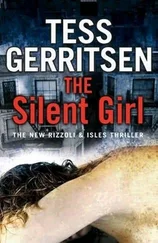“And what happens, Catherine?”
“I’m holding the gun. And there’s a sound. A loud sound.”
“The gun has fired?”
“Yes.”
“Did you fire the gun?”
“Yes.”
“What does Andrew do?”
“He falls. His hands are on his stomach. There’s blood leaking through his fingers.”
“And what happens next?”
A long pause.
“Catherine? What do you see on the movie screen?”
“Black. The screen has gone black.”
“And when does the next image appear on that screen?”
“People. So many people in the room.”
“Which people?”
“Policemen…”
Moore almost groaned in disappointment. This was the vital gap in her memory. The Rohypnol, combined with the after-effects of that blow on her head, had dragged her back into unconsciousness. Catherine did not remember firing the second shot. They still did not know how Andrew Capra had ended up with a bullet in his brain.
Polochek was looking at the window, a question in his eyes. Were they satisfied?
To Moore’s surprise, Rizzoli suddenly opened the door and gestured to Polochek to come into the next room. He did, leaving Catherine alone, and shut the door.
“Make her go back, to before she shot him. When she’s still lying on the bed,” said Rizzoli. “I want you to focus on what she’s hearing in the other room. The water running. Capra’s laughter. I want to know every sound she hears.”
“Any particular reason?”
“Just do it.”
Polochek nodded and went back to the interview room. Catherine had not moved; she sat absolutely still, as though Polochek’s absence had left her in suspended animation.
“Catherine,” he said gently, “I want you to rewind the movie. We’re going to go back, before the gunshot. Before you’ve gotten your hands free and rolled onto the floor. We’re at a point in the movie where you’re still lying on the bed and Andrew is not in the room. You said you heard water running.”
“Yes.”
“Tell me everything you hear.”
“Water. I hear it in the pipes. The hiss. And I hear it gurgling down the drain.”
“He’s running water into a sink?”
“Yes.”
“And you said you heard laughter.”
“Andrew is laughing.”
“Is he talking?”
A pause. “Yes.”
“What does he say?”
“I don’t know. He’s too far away.”
“Are you sure it’s Andrew? Could it be the TV?”
“No, it’s him. It’s Andrew.”
“Okay. Slow down the movie. Go second by second. Tell me what you hear.”
“Water, still running. Andrew says, ‘Easy.’ The word ‘easy.’ ”
“That’s all?”
“He says, ‘See one, do one, teach one.’ ”
“ ‘See one, do one, teach one’? That’s what he says?”
“Yes.”
“And the next words you hear?”
“ ‘It’s my turn, Capra.’ ”
Polochek paused. “Can you repeat that?”
“ ‘It’s my turn, Capra.’ ”
“ Andrew says that?”
“No. Not Andrew.”
Moore froze, staring at the motionless woman in the chair.
Polochek glanced sharply at the window, amazement in his face. He turned back to Catherine.
“Who says those words?” asked Polochek. “Who says, ‘It’s my turn, Capra’?”
“I don’t know. I don’t know his voice.”
Moore and Rizzoli stared at each other.
There was someone else in the house.
He’s with her now.
Rizzoli’s knife moved clumsily on the cutting board, and pieces of chopped onion skittered off the counter onto the floor. In the next room, her dad and two brothers had the TV blaring. The TV was always blaring in this house, which meant that everyone was always yelling above it. If you didn’t yell in Frank Rizzoli’s house, you didn’t get heard, and just a normal family conversation sounded like an argument. She swept the chopped onion into a bowl and started on the garlic, her eyes burning, her mind still wrapped around the troubling image of Moore and Catherine Cordell.
After the session with Dr. Polochek, Moore had been the one to take Cordell home. Rizzoli had watched them walk together to the elevator, had seen his arm go around Cordell’s shoulder, a gesture that struck her as more than just protective. She could see the way he looked at Cordell, the expression that came over his face, the spark in his eyes. He was no longer a cop guarding a citizen; he was a man falling in love.
Rizzoli pulled the garlic cloves apart, smashed them one by one with the flat of her blade, and peeled off the skin. Her knife slammed hard against the cutting board, and her mother, standing at the stove, glanced at her but said nothing.
He’s with her now. In her home. Maybe in her bed.
She released some of her pent-up frustration by whacking the cloves, bang-bang-bang . She didn’t know why the thought of Moore and Cordell disturbed her so much. Maybe it was because there were so few saints in the world, so few people who played strictly by the rules, and she’d thought Moore was one of them. He had given her hope that not all of humanity was flawed, and now he’d disappointed her.
Maybe it was because she saw this as a threat to the investigation. A man with intensely personal stakes cannot think or act logically.
Or maybe it’s because you’re jealous of her. Jealous of a woman who can turn a man’s head with just a glance. Men were such suckers for women in distress.
In the next room, her father and brothers gave a noisy cheer at the TV. She longed to be back in her own quiet apartment and began formulating excuses to leave early. At the very least she’d have to sit through dinner. As her mom kept reminding her, Frank Jr. didn’t get home very often, and how could Janie not want to spend time with her brother? She’d have to endure an evening of Frankie’s boot camp stories. How pitiful the new recruits were this year, how the youth of America was going soft and he had to kick a lot more butt just to get those girly-men through the obstacle course. Mom and Dad hung on his every word. What ticked her off was that the family asked so little about her work. So far in his career, Frankie the macho Marine had only played at war. She saw battle every day, against real people, real killers.
Frankie swaggered into the kitchen and got a beer from the refrigerator. “So when’s dinner?” he asked, popping off the tab. Acting as though she were just the maid.
“Another hour,” said their mom.
“Jesus, Ma. It’s already seven-thirty. I’m starved.”
“Don’t curse, Frankie.”
“You know,” said Rizzoli, “we’d be eating a lot sooner if we had a little help from the guys.”
“I can wait,” said Frankie, and turned back to the TV room. In the doorway he stopped. “Oh, I almost forgot. You got a message.”
“What?”
“Your cell phone rang. Some guy named Frosty.”
“You mean Barry Frost?”
“Yeah, that’s his name. He wants you to call him back.”
“When was this?”
“You were outside moving the cars.”
“Goddamnit, Frankie! That was an hour ago!”
“Janie,” said their mother.
Rizzoli untied her apron and threw it on the counter. “This is my job, Ma! Why the hell doesn’t anyone respect that?” She grabbed the kitchen phone and punched in Barry Frost’s cell phone number.
He answered on the first ring.
“It’s me,” she said. “I just got the message to call back.”
“You’re gonna miss the takedown.”
“What?”
“We got a cold hit on that DNA from Nina Peyton.”
“You mean the semen? The DNA’s in CODIS?”
Читать дальше












